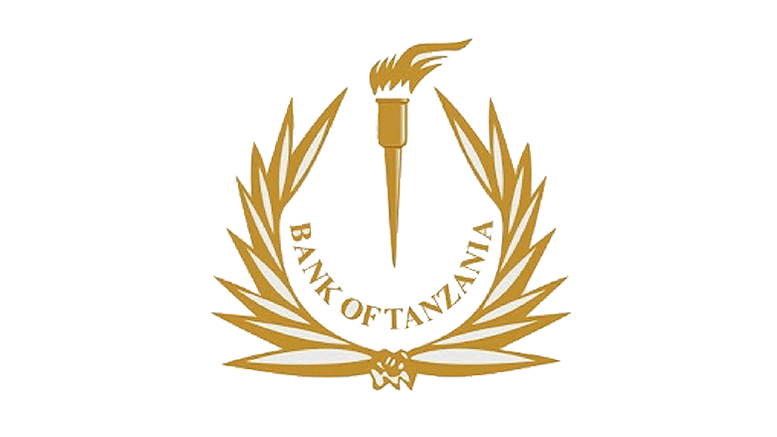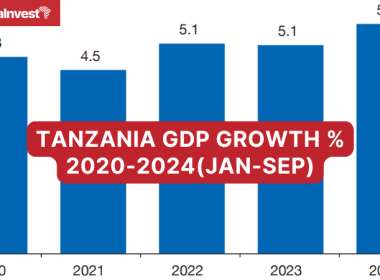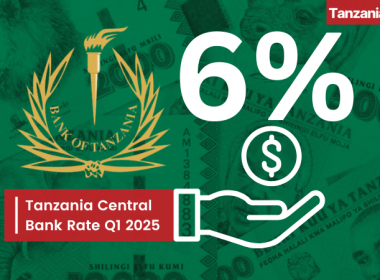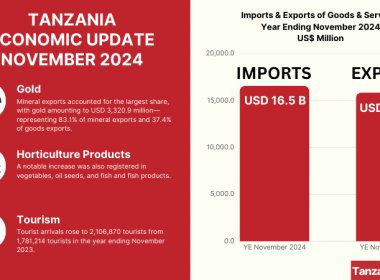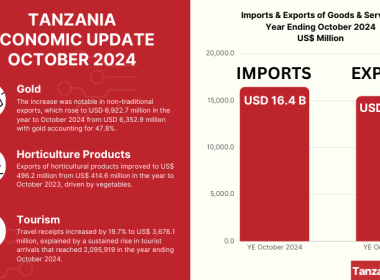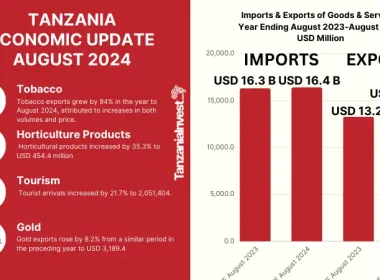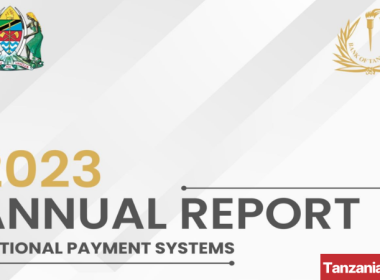Bank of Tanzania
The Bank of Tanzania (BoT)–the central bank of Tanzania–was established under the Bank of Tanzania Act of 1965.
In 1995, the government decided that the central bank had too many responsibilities, and was thus hindering its other objectives.
As a result, the government introduced the Bank of Tanzania Act of 1995, which gave the bank the primary objective to formulate, define and implement monetary policy, directed to the economic objective of maintaining domestic price stability, conducive to a balanced and sustainable growth of the national economy of Tanzania.
Price stability implies that the rate of inflation, which is measured by the rate of increase of the national consumer price index, has to be kept as low as possible, optimally within a longer-term average range of 0–5%.
The BoT has the sole responsibility of issuing notes and coins in Tanzania to directly influence the amount of currency in circulation outside banks and thereby providing the economy with sufficient, but if possible, non-inflationary liquidity.
In January 2020, the BoT published its Annual Report 2018-19, which indicates that the Bank will work on improving the functioning of the financial sector, among other intended outcomes, to reduce credit interest rates and improve lending to the private sector.
This includes measures to improve payment systems in the process of digitization of the economy, as well as spearheading financial inclusion initiatives and the development of financial markets
BoT Covid-19 Measures
In May 2020, the BoT published various policies approved by the Monetary Policy Committee (MPC) to cushion the economy from the adverse effect of Covid-19. The policy measures approved include:
Lowering the Statutory Minimum Reserves (SMR) requirements from 7% to 6% to provide additional liquidity to banks.
Reducing the discount rate from 7% to 5% to permit banks to borrow from the BoT at a lower cost, thus signaling lower lending rates.
Reducing haircuts on government securities from 10% to 5% for Treasury bills, and from 40% to 20% for Treasury bonds, to increase the ability of banks to borrow from the BoT with less collateral.
Increasing mobile money operators’ daily transaction limits to costumers, from TZS 3 million to TZS 5 million and daily balance from TZS 5 million to TZS 10 million, to encourage digital transactions thus reduce congestion in banking premises.
Promoting loan restructuring by providing regulatory flexibility to banks.





